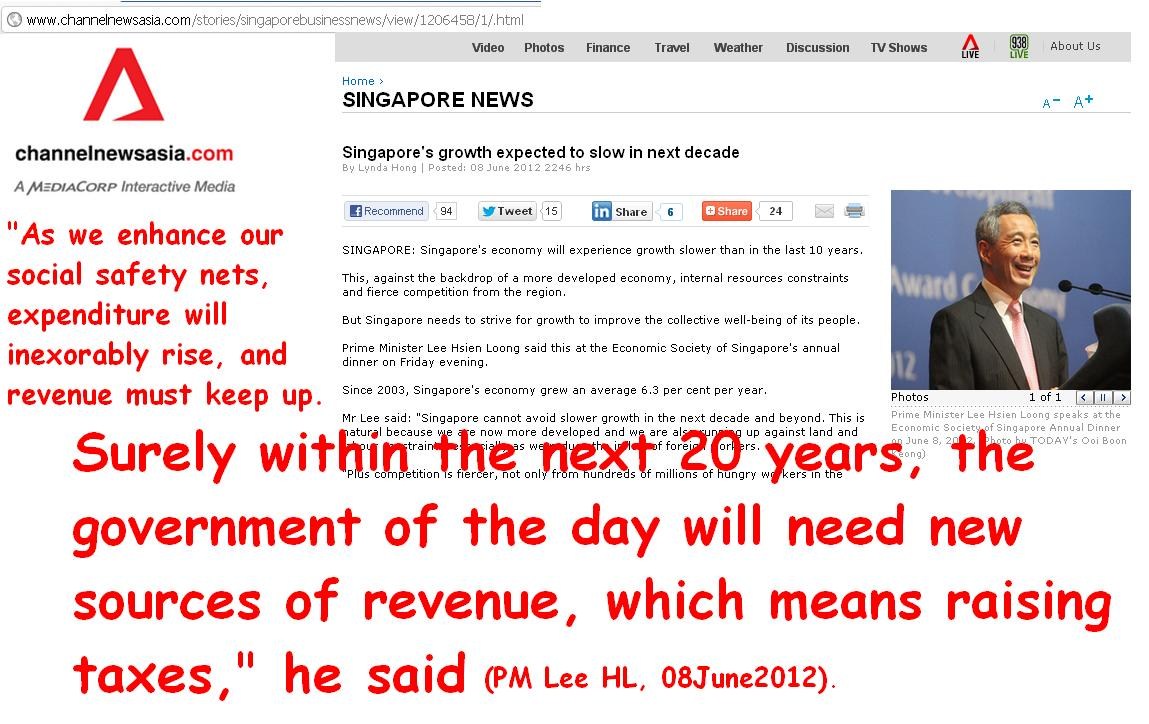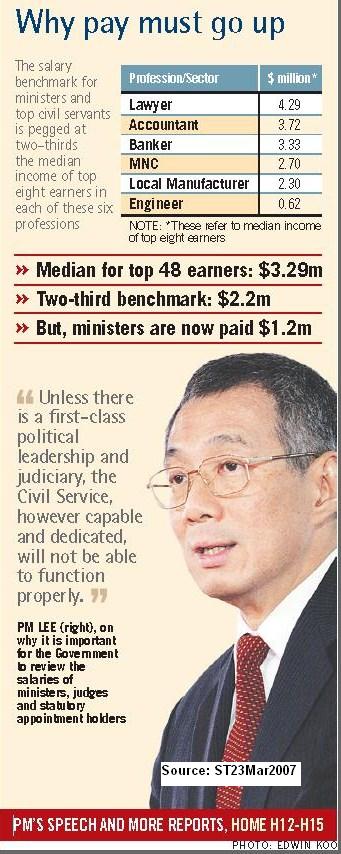Medishield life premiums now increase/ compulsory to help SG govt save money?-- (because govt medifund costs/expenses getting too high)?
Currently, those over 90 years old (& those with pre-existing illnesses) are not eligible (/pay higher premiums) for medishield and so ostensibly might appeal to medifund to pay/ subsidise their medical bills should they be unaffordable. By imposing higher medishied premiums and imposing the inescapable 'no opt out rule', perhaps the govt is intending to control costs by further socialising the cost of healthcare through higher medishield premiums rather than better healthy lifestyle education and other efforts to make Singaporeans exercise more- e.g. road cycling to work.


References:
- 'One Million Diabetics By 2050 as Singaporeans Get Older, Fatter'- "Every one in two people, by age 70, will be diabetic - up from one in three today"(Men's Health, Oct2012, URL)
- '1 in 4 Singapore women do not exercise at all: Survey': "More than 57 per cent of them cited work as the main reason holding them back. Other reasons include family commitments, and not knowing where to start and how to take that first step towards becoming healthier."
Tags: healthcare, insurance, socialism, Singapore, inflation, compulsory, illness, obesity, diabetes, exercise,
Currently, those over 90 years old (& those with pre-existing illnesses) are not eligible (/pay higher premiums) for medishield and so ostensibly might appeal to medifund to pay/ subsidise their medical bills should they be unaffordable. By imposing higher medishied premiums and imposing the inescapable 'no opt out rule', perhaps the govt is intending to control costs by further socialising the cost of healthcare through higher medishield premiums rather than better healthy lifestyle education and other efforts to make Singaporeans exercise more- e.g. road cycling to work.
National Day Rally 2013: MediShield Life to cover every Singaporean, including elderly and those with pre-existing illness
" Elaborating on the changes, he said that universal coverage means there will be no more opting out, with everyone covered including the elderly and those with pre-existing illnesses.
MediShield Life will also give better protection for very large hospital bills, and patients will pay less out-of-pocket, said Mr Lee.
But with better benefts and coverage, this will mean that premiums will go up, he said. “(It) has to be because it has to break even,” he said, but added that the Government will subsidise premiums for those who cannot afford them."
http://m.todayonline.com//singapore/new-medishield-life-provide-lifelong-coverage-pm-lee
FRIDAY 15 NOVEMBER 2013
More received help through Medifund in 2012: MOH
14 NOVEMBER
SINGAPORE — More needy and elderly patients received aid through the Medical Endowment Fund (Medifund) last year, the Ministry of Health (MOH) announced today (Nov 14).
MOH said that more than S$100 million in Medifund aid was provided to needy patients in 2012, an increase of about 12 per cent from the S$90 million a year ago.
S$86 million of the amount went to patients in the acute sector while S$16 million went to those in the Intermediate and Long-Term Care (ILTC) sector.
Needy elderly patients received S$33 million in aid, an increase of 19 per cent from the last fiscal year.
Over 587,000 Medifund applications were approved last year, MOH said. About 93 per cent of the successful applications received full assistance. On average, the amount of assistance was S$1,471 for inpatient treatments, and S$107 for outpatient treatments.
Medifund was introduced to assist needy Singaporeans with their medical bills, on top of government subsidies, Medisave and Medishield. In 2012, the Government injected S$600 million into the Medical Endowment Fund, bringing its total size to S$3.08 billion in capital sum, MOH said.
Copyright ©2012 MediaCorp Press Ltd. All Rights Reserved
http://m.todayonline.com//singapore/more-received-help-through-medifund-2012-moh
References:
- 'One Million Diabetics By 2050 as Singaporeans Get Older, Fatter'- "Every one in two people, by age 70, will be diabetic - up from one in three today"(Men's Health, Oct2012, URL)
- '1 in 4 Singapore women do not exercise at all: Survey': "More than 57 per cent of them cited work as the main reason holding them back. Other reasons include family commitments, and not knowing where to start and how to take that first step towards becoming healthier."
Tags: healthcare, insurance, socialism, Singapore, inflation, compulsory, illness, obesity, diabetes, exercise,
Last edited:
